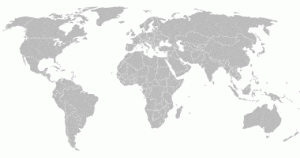Reports of increases in the numbers of homeless people are pouring in from all over the world yet many governments still do not consider homelessness worthy of a policy response in its own right and relegate it to the periphery of either housing or social (welfare) policy arenas and interventions. In the introductory sections of..
Read moreUnshackling the chains of homelessness in the City of Tshwane: A critical appraisal of the current policy in the light of national and local policies and strategies
This article provides a critical appraisal of the current Homelessness Policy for the City of Tshwane in the light of national and local policies and strategies. Both a literature review and policy analysis were conducted to attain the main aim of this article. Documents consulted and used in this process included the Constitution of the..
Read moreHomelessness in Pretoria: Exploring the survival challenges of the homeless and their right to the city
This article documents the biographies of 60 homeless people from a range of different backgrounds in South Africa’s capital city of Pretoria. The article focuses on their right to the city and how the lack thereof affects their daily lives. It explores the challenges they face on a daily basis and the different strategies they..
Read more‘A shelter is not a home’: Voices of homeless women in the City of Tshwane
In response to a request from the City of Tshwane that homelessness in the city be explored, a research team was established in 2014. The research was divided into four pillars: conceptual/theoretical perspectives of homelessness; narratives and experiences of homeless and former homeless people, particularly women; documentation of current practices to curb homelessness in the..
Read more‘Not just numbers!’ Homeless people as potential economic contributors in Tshwane
Statistics on homelessness in the City of Tshwane fail to give us ideas about the capacities homeless people have that could be used as a stepping stone for their own economic empowerment and development. Stories of homeless people considered in this research affirm that there are real people behind those ‘cold’ numbers. This research further..
Read moreEngaging with homelessness in the City of Tshwane: Ethical and practical considerations
Policies and practices aimed at developing more engaged universities that are responsive to the needs of society have become key features of the higher education landscape of most countries. Visions of universities ‘engaged’ in matters of local importance increasingly require academics to reframe their scholarship as some form of ‘engagement’. This requirement has been addressed..
Read moreThe Tshwane Homeless Summit as dramaturgy: A contextual, trans-disciplinary epistemology from below
In this article we propose a contextual, trans-disciplinary epistemology from below, as explored through the lenses of the Tshwane Homeless Summit and the broader policy-making process of which it formed a part. The article considers the Tshwane Homeless Summit as dramaturgy, wondering whether the stage that was set was predetermined or allowed for dissensus, irruption..
Read more[Virtual Colloquium] Solidarity with the homeless poor during Covid-19: we cannot be free unless you are free!
The Centre for Faith and Community at the University of Pretoria, in conjunction with its research associates in its Social Justice and Reconciliation Research Group, is hosting a 2-hour colloquium in the title: "Solidarity with the homeless poor during Covid-19: we cannot be free unless you are free!". When? FREEDOM DAY - 27 April 2020; 16h00-18h00, on Zoom. We will..
Read more[Virtual Colloquium] Homelessness & Covid-19 in the City of Tshwane
A virtual Colloquium was hosted on Zoom on Thursday the 28th of May 2020, from 16h00-18h00 The purpose of this Colloquium was: to register what was created collaboratively since the end of March 2020, in support of reducing risk and facilitating distancing and safe space for street homeless persons;to ask how what was created could be secured beyond..
Read moreFaith in the City – Report 2017
The Centre for Contextual Ministry is hosted in the Faculty of Theology at the University of Pretoria. Since 2012 the Centre has a specific research project entitled “Faith in the city” with as sub-title “the (dis)engagement of church and theology in relation to healing urban fractures, with specific reference to the City of Tshwane”. What started as an..
Read more







![[Virtual Colloquium] Solidarity with the homeless poor during Covid-19: we cannot be free unless you are free!](https://www.research.centreforfaithandcommunity.co.za/wp-content/uploads/2020/06/sabelskaya190500842.jpg)
![[Virtual Colloquium] Homelessness & Covid-19 in the City of Tshwane](https://www.research.centreforfaithandcommunity.co.za/wp-content/uploads/2020/06/Homeless-COVID19-DSC_5826-1-scaled.jpg)
